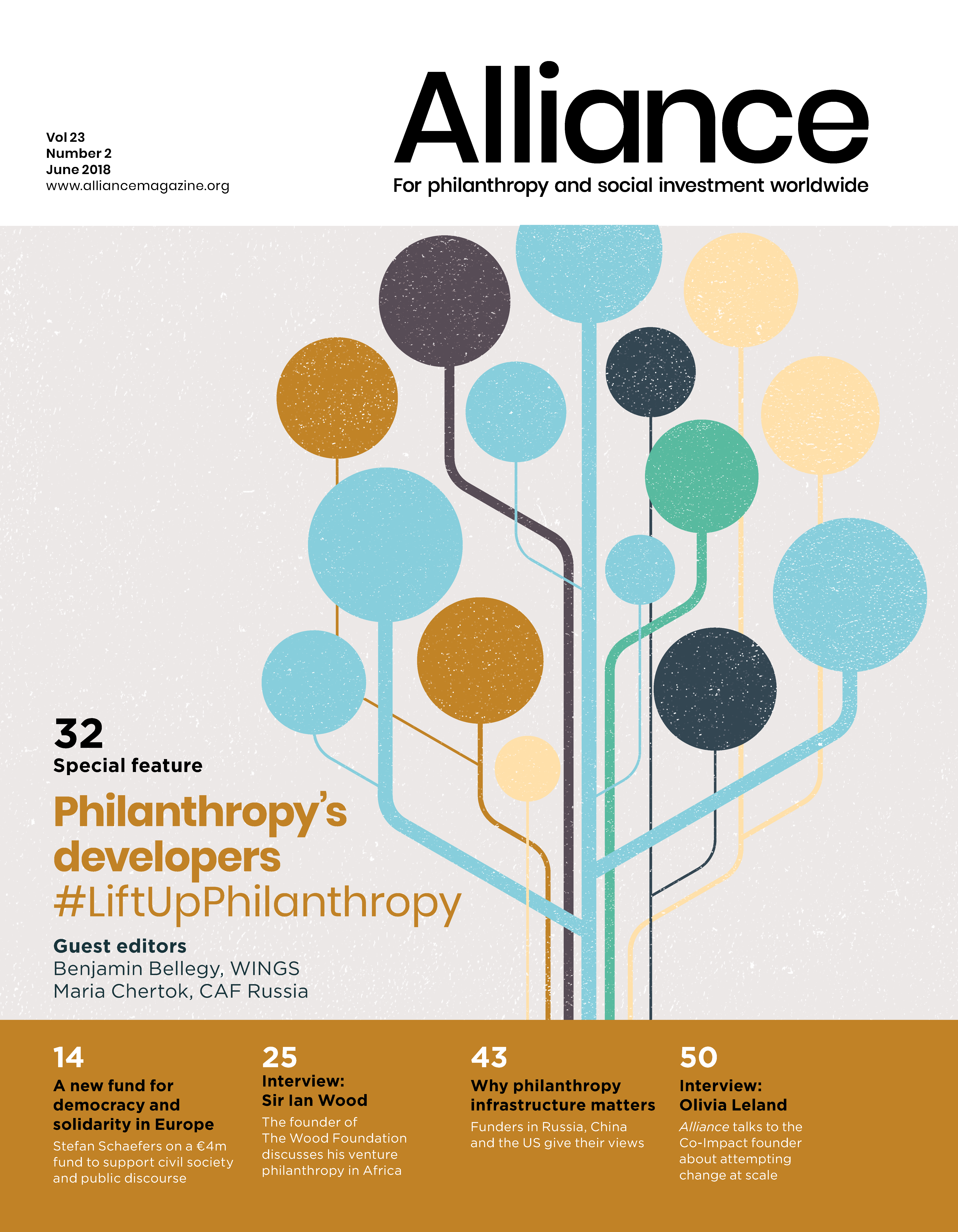The philanthropy sector’s information infrastructure is wholly inadequate
Most discussions of philanthropy infrastructure focus on organizations. I want to focus instead on information. The first thing to say is that the way the social sector organizes information is woefully unfit for purpose.
There are three main groups involved in our sector: those meant to benefit from philanthropy and social change (the primary constituents), the implementers of efforts to create social value, and the funders. What information do each of these three groups need to make effective decisions?
Primary constituents
Let’s think of them as consumers. If we reframe some of President Kennedy’s special message to Congress on protecting the consumer interest in 1962 for the social sector, we come up with the following:
The right to safety: translates to the right to not being messed about by people who have no clue what they are doing. Primary constituents have a right to know the evidence underpinning the claimed benefits for the proposed intervention.
The right to be informed: comes through pretty much unchanged – to be protected against fraudulent, deceitful, or grossly misleading information.
The right to choose: though it cannot be guaranteed, the kinds of information in the two other points should form a basis for choice. Perhaps most helpful would be reliable information about the experience of service users or constituent feedback.
Implementers
Implementers need to know what results flow from their work. Similar to primary constituents, they need to understand the experience of the people whom they affect – and can do so through constituent voice. In addition, they need information for efficient implementation, such as costs, timeliness, level of effort and interim results – in effect, the immediate inputs and outputs.
Funders
Funders are one or more steps removed, but they still need information about results, like those directly implicated, so that they can learn and improve. With respect to feedback data, Fredrik Galtung of Integrity Action has shown that what we most need is a Fix-Rate, which he defines as the quality of implementer responses to feedback. Most importantly, only the primary constituents can say whether an implementer response is adequate.
For all these groups, transparency is imperative. This puts an important additional responsibility on funders, who are the group best placed to pay for public information infrastructure.
On performance and operational indicators, funders need to know intended targets (measurable goals), and the rate at which grantees are hitting those targets. Let’s call this the Hit-Rate.
For all these groups, transparency is imperative. This puts an important additional responsibility on funders, who are the group best placed to pay for public information infrastructure, such as online databases, although implementers can and should publish.
Our report card
So how well is our sector meeting its information needs? Here’s my report card, using a 0 to 10 scale.

Sadly, we are clearly failing.
Only a handful of implementers even consider that they should be providing information on results to those they intend to help. The slightly better grade for constituent voice is only because we can see the beginnings of a recognition that it is necessary to report to constituents on the feedback that they provide.
Most implementers can’t articulate their results with an acceptable degree of reliability. Most can’t use their constituents’ feedback to improve. The only category that receives a passing grade, the lowest possible one, is performance and operational information.
Who should fix this?
Funders must accept the lion’s share of the blame for the overall state of affairs. They have responsibility to allocate resources to ensure all actors have the information they need. They don’t do that, even for themselves. Ouch!
The ‘2’ on results recognizes that a couple of sector support organizations specializing in information – the Foundation Center in the US and 360Giving in the UK – have some solid early infrastructure for where funds are going. That’s a great start.
Suppose you’re a funder in the UK trying to fund, say, domestic violence, and want to look up evaluations of organizations who work in that area. Where can you go? Nowhere. In medicine, you’d go to PubMed (a searchable database of all published medical trials) and have the research you need in two seconds. In the voluntary sector, you’d struggle to find it all: hence the ‘2’.
Sure, there are small, early and interesting efforts to improve quality in, and access to, evaluation (creating registries, standards, for example, norms for publishing evaluations, standardized mandatory fields in evaluations such as sample size, metadata), and common funding pots. But as welcome as these are, they are minuscule in relation to the need.
Funders would have ‘0’ for constituent voice but for two important recent foundation collaborations – The Fund for Shared Insight in the US and the Listening Fund in the UK. Again, these efforts need to spread beyond a small handful of positive deviants.
They get a ‘1’ for operational and performance information because we know of only a handful of funders who can provide the Hit-Rate for their fundees.
We don’t have to wallow in information squalor. Surely we can set standards for publishing evaluations, constituent voice data, Fix-Rates, and Hit-Rates? An obvious place to start is with funders, who can assess themselves, and publish those assessments. Once information is published, we have lots of examples of industries with standardized metadata so what is published is findable.
Solutions here need to come from the field. What if we had a campaign using social media and an open process to generate ideas, enlist commitments, and organize for actions? Such a campaign could work, but only if there were a will. So it boils down to this. Are we ready to commit to doing better and holding each other accountable for a fit-for-purpose informational basis for work in the public interest?
The author wishes to thank Caroline Fiennes of Giving Evidence for her contributions to this article.
David Bonbright is founder and CEO of Keystone Accountability.
Email: davidb@keystoneaccountability.org






Comments (0)